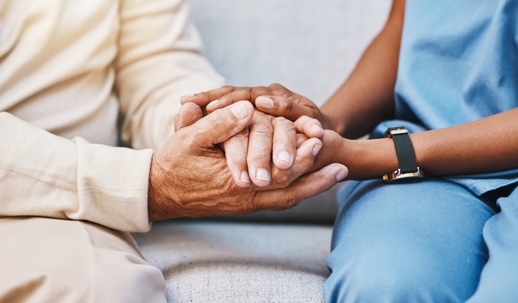When it comes to elder care, everyone deserves to feel confident that their loved ones are safe, respected, and treated with the dignity they deserve. Unfortunately, that’s not always the case. Across the country, cases of neglect and abuse in nursing homes remain a serious issue, leaving families heartbroken and in search of justice.
While the emotional toll of these situations can be devastating, legal action has proven to be a powerful tool for creating positive change. By holding nursing homes accountable and demanding higher safety standards, families and attorneys can work together to help reform the system and ensure safer conditions for all residents.
The Role of Legal Action in Driving Change
At first glance, filing a lawsuit might seem like an isolated attempt at seeking compensation for a specific situation. But legal cases often create ripple effects that extend far beyond individual families. Here’s how:
1. Holding Nursing Homes Accountable for Neglect and Abuse
The threat of legal consequences is a strong motivator for improvement. Nursing homes found guilty of violating safety protocols, understaffing, or neglect are often forced to pay fines, settlements, or other financial penalties. Beyond these costs, the reputational damage can be significant.
For example, families who sue over cases of elder neglect often bring public attention to unsafe practices, leaving other facilities on high alert. The resulting accountability makes it clear to the industry that cutting corners on resident care simply isn’t worth the risk.
2. Improving Safety Standards
Many lawsuits target more than individual instances of abuse; they push for changes that protect all nursing home residents. Legal settlements may require nursing homes to introduce better staff training, install surveillance cameras, or adopt stricter protocols for medication management.
One recent example involved a large elder care chain that settled a high-profile class action lawsuit. The terms of the settlement required the facility to hire more registered nurses, improve meal preparation standards, and increase transparency around family communication. These changes set a precedent, reminding facilities that adherence to proper care standards isn’t optional.
3. Encouraging Legislative Reform
Sometimes, particularly egregious cases of abuse trigger public outcry, putting pressure on lawmakers to take action. Legal battles can also highlight dangerous gaps in oversight, prompting legislators to create new laws aimed at protecting elder care residents.
For instance, some states have passed legislation requiring mandatory reporting of abuse after particularly tragic legal cases. Others have increased penalties for nursing homes failing to meet minimum staffing levels, largely due to advocacy from families who pursued legal action.
Real-Life Examples of Legal Success Stories
There’s no shortage of stories that demonstrate how legal action has made a real difference in elder care reform. These cases not only provide hope to families seeking justice, but also send a strong message to the industry that neglect and abuse will not go unpunished.
- The Case That Prompted Staffing Reform After an elderly resident suffered fatal injuries due to neglect in a short-staffed nursing home, her family pursued legal action. The resulting lawsuit unearthed systematic understaffing across the chain that owned the facility. The family secured compensation for their loss and helped initiate laws demanding better staffing ratios across the state.
- A Class Action to Improve Resident Dignity A class action lawsuit filed on behalf of multiple families revealed that residents in several facilities were regularly denied proper hygiene care. The settlement required the facilities to adopt specific protocols for bathing, grooming, and laundry care, ensuring residents’ dignity was always preserved.
- Elder Abuse Awareness Campaigns Inspired by Lawsuits After a nursing home failed to protect residents from physical abuse by an employee, public outcry grew following the lawsuit’s settlement. This tragedy spurred an advocacy campaign, increasing funding for elder abuse awareness programs and hotline services in the region.
Signs Your Loved One May Need Help
By staying vigilant, families can detect early signs of neglect or abuse and take swift action. If you notice any of the following during visits, it may be time for a closer look:
- Frequent falls or unexplained injuries like bruises or cuts.
- Malnourishment or unexplained weight loss.
- Dirty clothing or living spaces.
- Untreated medical conditions or unnecessary delays in care.
- Sudden changes in mood, like depression or fearfulness.
- Staff refusing to leave you alone during visits.
If something feels off, trust your instincts. You don’t have to fight these battles alone.
How an Attorney Can Help Create Change
Getting legal help isn’t just about addressing what’s already happened. Lawyers who specialize in elder care cases also work to prevent abuse and neglect on a larger scale. Here’s how they can help:
- Case Investigation: Attorneys can gather evidence of mistreatment, interview witnesses, and dig into facility records to uncover systemic problems.
- Filing Claims: A skilled lawyer knows how to file lawsuits designed to get results, even when nursing homes try to hide behind legal loopholes.
- Pushing for Reforms: Many attorneys aim for settlements or court orders that enforce broader changes in facility practices.
- Empowering Families: Legal advocates can also educate families on their rights, arming them with the knowledge to advocate for better care.
Nursing Home Abuse, Neglect, & Injury Attorneys
If you have concerns about the care your loved ones are receiving in nursing homes, seeking expert legal counsel is a critical step to ensure their protection and justice. For families in Hattiesburg, MS, the McHugh Fuller Law Group is committed to helping you navigate these complex legal landscapes effectively. Contact us today to explore your legal options and protect the rights of your loved ones. Your partnership in safeguarding elder care residents can make a significant difference in creating a safer, more respectful environment for all. Contact us today at (601) 255-0240 to get started.


